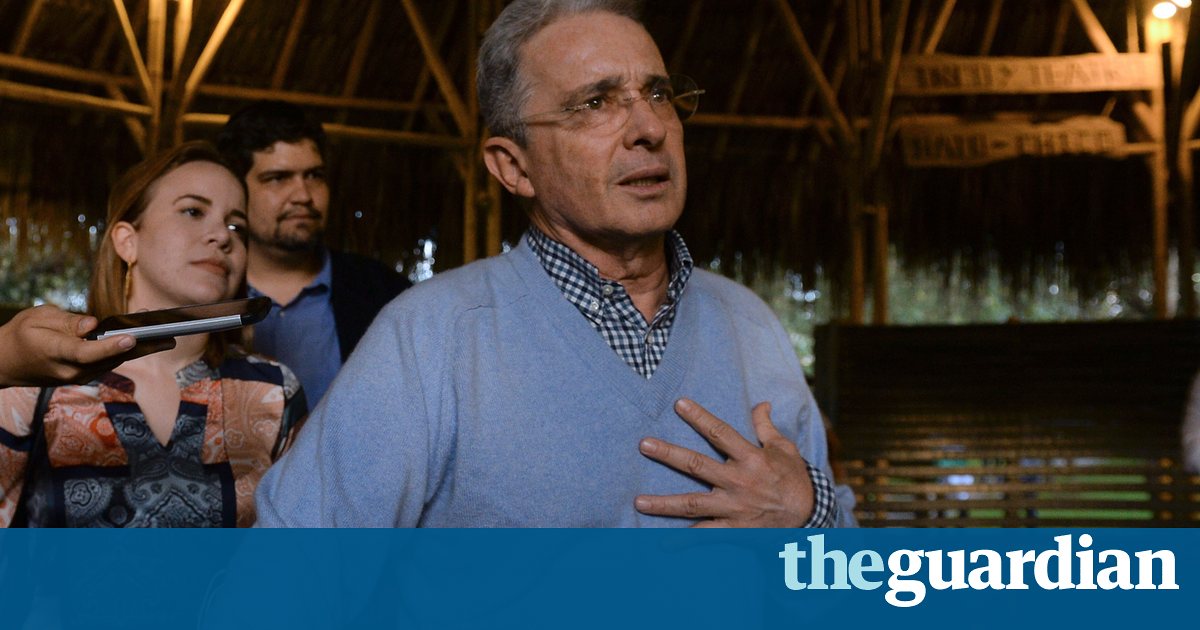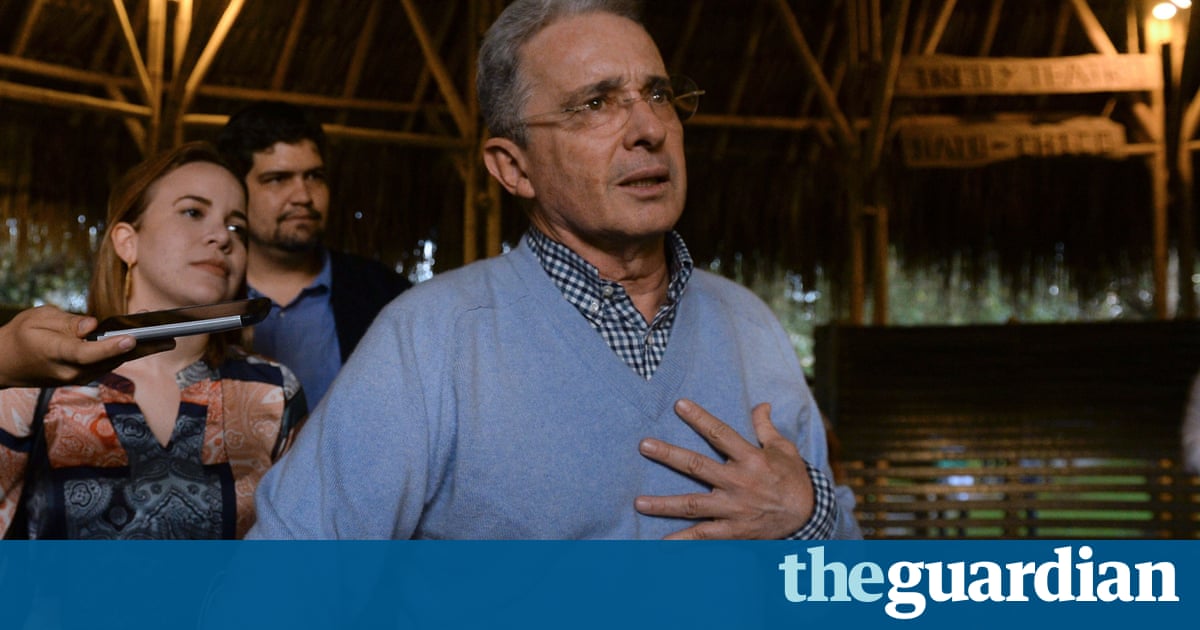Just like the Brexit vote, the Colombian referendum was corrupted by lies | Juan Gabriel Vsquez

The countrys voters rejected a peace deal with the Farc guerrillas. But their decision was swayed by an opposition leader who will do anything for power

The rejection of the Colombian peace deal took us all by surprise. It surprised, first of all, those who rejected it, for they had already voiced their conviction that the country was a dictatorship and the referendum was rigged.
The political cartoonist Hctor Osuna, whose clear-sightedness is already a thing of the past, published a regrettable column in which he accused the government of spending our money in elections that were not truly free; a spokesman for the Democratic Center, the main leaders of opposition both to the deals and to the process itself, stated that the Farc guerrillas had moved on to politics and that this fact needed to be respected.
The Democratic Center, a rightwing party of ultra-Catholic positions and intolerant manners, has spent the last four years opposing the very possibility that the guerrillas could participate in politics, and quickly corrected the spokesman. The simple truth is they didnt have a plan B in case they won. The simpler truth is they didnt even have a plan A. This is not the only similarity between our referendum and the Brexit debacle.
Since last Sunday, when Colombians decided by a margin of just 60,000 votes not to end a war that has cost hundreds of thousands of lives and displaced millions more, we have heard and read over and over the useless platitude: we all want peace in the end. The words have been insisted upon by those who voted against the deal, surely in an attempt to avoid accusations of warmongering.
No one has pointed out that what really bothers those of us who supported the peace deal isnt the defeat its the fact that so many people rejected this chance under the influence of lies and superstition. It is self evident that rejecting the agreements, to many, was the same as rejecting the guerrillas, whose criminal record is a long inventory of pain and suffering, and who were late in assuming their guilt with something resembling humility. But the days to come will have to see a national debate about the weight of lies in our final decision.
For four years, while negotiations went on in Havana, the leaders of the no vote repeated a series of lies that became more extravagant as support for the agreements appeared to grow. Ex-president lvaro Uribe, head of the Democratic Center and a shameless populist, maintained that the agreements would turn Colombia into the next Venezuela; he then said that the purpose of the agreements was to abolish private property; he then accused the government of negotiating his own imprisonment with the guerrillas.
One of his most powerful allies is Alejandro Ordez, whose CV includes burning copies of One Hundred Years of Solitude in his youth. Ordez, who used his considerable power as head of the public ministry to condemn homosexuality and try to ban abortion, got the Colombian people to believe that the peace deals were a secret strategy to impose a gender-oriented ideology on the country. He then said that the deals would abolish the Catholic family model; he then accused the government of negotiating his dismissal with the guerrillas. Of course, none of this is remotely true. But people voted with these fears in their minds, and openly said so.
Now we are left with the moral obligation of rescuing whatever is possible from the wreckage of a great opportunity. No one knows right now what will happen in Colombia.
Santos had the statesmanlike reflex to enforce the bilateral ceasefire the best piece of news many Colombians have received in half a century and then called the leaders of the no vote to voice their concerns. The Farc guerrillas vowed to use only words to defend their ideas, which was their way of announcing their intention to respect the ceasefire too. But in such conditions in the rarefied air of distrust and fear any provocation can turn into a tragedy. Several negotiations in our past have failed in this way. This is what will have to be avoided at all costs, and the calendar is less lenient this time around.
The Nobel prize for peace awarded to president Santos, besides honouring the courageous stubbornness of those who support the peace deals, came as a serious acknowledgement of what is at stake here. It remains to be seen whether it will give the government any leverage.
Yes, the leaders of the opposition met President Santos last Wednesday. But it is uncertain whether anything will come out of this meeting. The Democratic Center is a sectarian party: over recent years, its members have spoken about saving the country from atheist communism; they have also suggested that anyone who didnt vote for Uribe in the last election was an accomplice of the terrorists.
The situation is dire because Uribe has no tangible reason to reach an agreement: it is in his interests to stretch the new talks until they slowly melt into the presidential elections in 2018. A return to power for this man who reformed the constitution in order to allow his own re-election, could be the most significant outcome of this national crisis. This, of course, justifies every lie, every piece of misinformation, every distortion of the truth.
For myself, I never thought we could become the next Venezuela. I did not imagine, however, that we would stubbornly go on being the old Colombia.
Read more: https://www.theguardian.com/commentisfree/2016/oct/10/colombian-referendum-farc-guerrillas-brexit